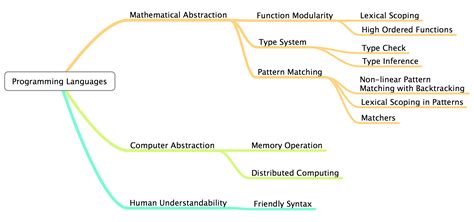In the ever-evolving landscape of programming languages, the introduction of novel features can sometimes feel like a refreshing breeze. One such feature that has caught the attention of the developer community is the ‘toss’ construct in Hurl. This construct, often likened to resumable generators, has sparked a mix of amusement and intrigue. Some developers initially view it as a ‘cute’ but non-essential feature. However, beneath its whimsical exterior lies a sophisticated tool that may significantly impact the way we approach programming, particularly in exception handling and concurrency.
The Hurl ‘toss’ mechanism allows developers to pass multiple values out of a function, effectively enabling resumable execution from certain points in the code. This is reminiscent of the ‘yield’ keyword in languages like C#. Developers familiar with languages such as OCaml, which has recently introduced lightweight concurrency through ‘effect handlers’, will notice similarities. OCaml’s effect handlers operate in a somewhat comparable manner, allowing functions to suspend and resume, providing a powerful tool for asynchronous programming. These concepts, while not entirely new, are revitalized through Hurl’s implementation, providing a unique flavor to the programming world.
One cannot discuss ‘toss’ without touching upon the broader concept of algebraic effects. For those unfamiliar, algebraic effects allow for more structured handling of computations that might involve exceptions, state, or asynchronous operations. Hurl’s ‘toss’ offers a simplified form of these effects. Interestingly, it enables control flow mechanisms that go beyond simple exception handling. Imagine having a function that can fail and resume later, incorporating new data or retrying operations based on changed conditions. This paradigm is especially useful in API callbacks, where operations might need to be retried or resumed based on network conditions or server responses.
Another fascinating aspect of Hurl is how it invites comparisons with other languages and constructs. For instance, the Common Lisp conditions system allows for multiple restarts, enabling developers to inject behavior dynamically at runtime. Hurl’s ‘toss’ is a more straightforward approach but shares the essence of dynamic control flow injection. This has led to discussions about its potential for dependency injection, where ‘toss handlers’ could introduce behaviors or services into running code. It’s a novel twist on a well-established concept that could simplify certain patterns of dependency management.
Of course, no discussion on a programming language feature would be complete without addressing its potential pitfalls. Debugging larger codebases with complex control flow, enabled by features like ‘toss’, can be quite challenging. Developers have expressed concerns about the readability and maintainability of code that heavily relies on such constructs. The lexical scoping required for the ‘return’ statement in Hurl, for example, contrasts with languages like Python, where ‘next()’ can be called more flexibly. This makes structuring and understanding the flow of Hurl-based applications potentially more difficult.
The naming conflict between Hurl, the programming language, and Hurl, a command-line tool for HTTP requests, has also been a topic of discussion. Multiple products sharing the same name is not uncommon in the tech world, as exemplified by GitHub’s repository explosion. However, some developers argue that when one project is significantly popular, a name change should be considered to avoid confusion. This sentiment is echoed by developers who believe that meaningful names contribute to clearer communication within the community. Naming conventions and the clarity they bring are subtle yet important aspects of software development.
Ultimately, Hurl’s ‘toss’ feature represents a quirky yet potentially powerful addition to the programming toolkit. Its adoption and impact will largely depend on how well developers can harness its capabilities while managing its complexities. As with any powerful tool, ‘toss’ requires a thorough understanding and careful application. The community’s feedback will undoubtedly shape its evolution, much like how other innovative features have matured over time. Hurl stands as a testament to the continuous innovation within programming languages, pushing the boundaries and challenging developers to think differently about code execution and flow control.


Leave a Reply